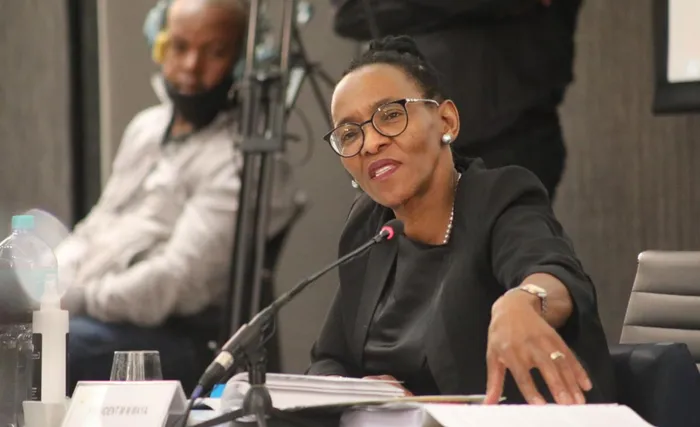
Chief Justice Mandisa Maya headed the Judicial Service Commission interviews for vacancies across the country in October.
Image: FILE
THE Judicial Service Commission (JSC) was only able to fill 16 of the 24 vacancies having interviewed 51 candidates over the course of seven days for vacancies at nine superior courts across the country.
These included the Constitutional Court, the Supreme Court of Appeal, the Labour Court, and various provincial divisions of the high court, including KwaZulu-Natal, Gauteng, Mpumalanga, Free State, and Limpopo.
Reflecting on the interview process, online group Judges Matter remarked that it is not a bad thing that the JSC was so selective.
In 2023, the JSC adopted new criteria and guidelines for interviews. These focus on the legal skills and ability of aspirant judges. The legal group noted that the JSC interviews have improved markedly in terms of the quality of questions and the general conduct of commissioners.
It has earlier made several proposals to the JSC as to how to streamline its process, which included amending the application form submitted by aspirant judges.
These amendments closed a major loophole by requiring candidates to disclose information relating to their ethics and conduct and included questions such as whether a candidate has been found guilty of ethical misconduct or is under investigation by a professional or other body.
Ahead of the October 2024 recruitment process, the JSC amended its form to include questions like these. Since then, several candidates have not been appointed based on their responses. This is one of the main reasons why the JSC filled only 16 of the 24 vacancies this time, Judges Matter said.
One of the candidates for two vacancies at the Constitutional Court, Dr Madumetja Malepe, disclosed that she was undergoing debt review and had previously been accused (and subsequently cleared) of theft allegations at her church.
Malepe was unable to answer questions relating to this to the JSC’s satisfaction and was not recommended for appointment.
Gauteng High Court candidate Stephens Thobane was not appointed after disclosing a suspension from legal practice for failing to submit the required audits for his firm. He characterised this as “administrative”, but Commissioner Moboku Mangena disagreed, calling it an “ethical impairment,” Judges Matter noted.
Gauteng High Court candidate Lesibana Ledwaba was also not appointed based on his response to a question about a dispute with his local bar overcharging. Asked how it was resolved, Ledwaba said he had amended the invoice and reduced the amount.
While some non-appointments were due to ethical issues, others resulted simply from candidates not being up to the mark, Judges Matter said. The JSC also found none of the three candidates for the Eastern Cape Deputy Judge President position suitable for appointment. The three senior judges, Buyiswa Majiki, Bulelwa Pakati, and Mandela Makaula, struggled to present a compelling vision for addressing the challenges facing the province’s courts, especially in Mthatha.
Judges Matter remarked that considering that the Judge President of that division - Selby Mbenenge - faces a complaint of sexual harassment, none of them responded adequately to questions about the new Sexual Harassment Policy for the Judiciary. “Makaula even offered startling advice: ‘Don’t hug colleagues, keep your zip up, and your mouth shut’”.
Interviews for three vacancies in the Eastern Cape High Court were cancelled shortly before the JSC session, reportedly due to threats of litigation from a disgruntled applicant who had not been shortlisted, Judges Matter added.
“While the JSC’s October session attracted attention for several missteps, it is encouraging to see the Commission’s ongoing commitment to quality and rigour in judicial appointments,” Judges Matter said.
Cape Times
Related Topics: